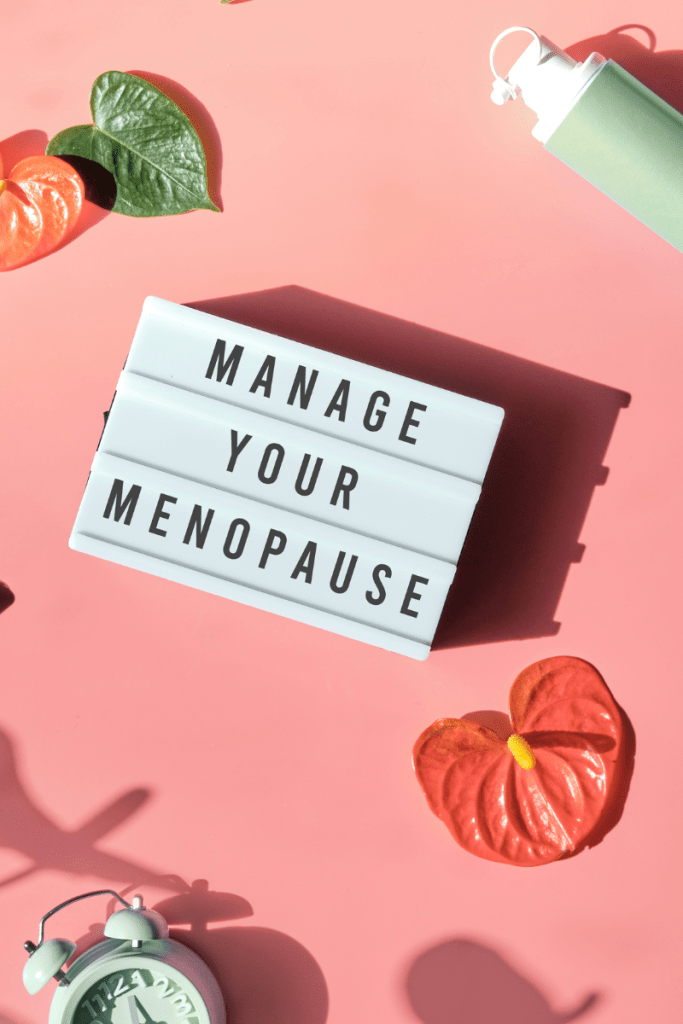Menopause is a significant time of change, both physically and emotionally, and this transition can last anywhere from 2 to 10 years, depending on the individual. During this period, many women experience a range of menopause symptoms, from hot flushes to mood swings and disrupted sleep patterns. These shifts can alter how women feel in their own bodies, potentially influencing their relationship with food.
As a nutrition professional, I frequently work with women going through menopause who struggle with issues like emotional eating, body image concerns, and appetite control. These challenges are common, and in recognition of World Menopause Day, I want to explore the possible reasons behind these changes in appetite and relationship with food during this phase of life.
Hormones and appetite
Most of us are familiar with the concepts of hunger and fullness, but fewer people are aware of the complex pathways path ways in the body that control appetite. Hormones play a pivotal role in regulating how hungry or full you feel, and during menopause, significant shifts in hormone levels may disrupt these systems. There is a relationship between our internal appetite regulation systems and the environment you live in- many factors will impact your decisions to eat, how hungry you are and whether you stop eating when you are full.
One key hormone, oestrogen, is thought to suppress appetite. As oestrogen levels decrease during menopause, it’s believed that this may cause an increase in appetite for some women. There’s also evidence suggesting a link between oestrogen and leptin—the hormone responsible for signalling fullness after eating. Some studies indicate that leptin levels may drop during menopause, meaning some women might need to eat more to feel satisfied.
However, the science on how menopause directly affects appetite hormones is still inconclusive. While we have some insights into the mechanisms behind these changes, there’s no concrete evidence that these hormone shifts alone are responsible for increased hunger or cravings during menopause. But it’s certainly possible that hormonal changes are contributing to changes in appetite.
Is it hunger or craving?
Many women report feeling hungrier during menopause, but it’s important to distinguish between physical hunger and cravings. Physical hunger occurs when your body needs food for energy, whereas cravings are often driven by emotions or environmental triggers.
Cravings are incredibly common—over 90% of us experience them—and they usually manifest as a desire for specific foods. During menopause, several factors may lead to an increase in cravings, including:
- Sleep disturbances, making you feel more tired and prone to cravings.
- Hormonal changes, which can affect mood and increase emotional eating.
- Heightened stress as you navigate the physical and emotional changes of menopause.
- Over-restriction of certain foods, which may backfire and lead to intense cravings.
Cravings can sometimes feel overwhelming, leading women to feel out of control around food. Over time, this can erode trust in your food choices and impact your overall relationship with food.
Mood swings, brain fog, & stress: Turning to food for comfort
Menopause can bring about a host of emotional challenges. Brain fog is a common symptom, making it difficult for women to focus, remember things, or make decisions. Mood swings, another prevalent symptom, affect over two-thirds of women in menopause and are linked to hormonal changes such as reduced oestrogen levels. These mood shifts, along with the increased risk of depression, can lead to turning to food for comfort.
When we’re stressed, our bodies release cortisol, which can trigger cravings for high-sugar or high-fat foods. While turning to food for temporary relief is common, it can create a vicious cycle of emotional eating that may leave women feeling even worse about their food choices afterward.
Menopause and body image: Navigating social pressures
In addition to emotional eating, menopause often brings changes to body shape and weight. Society places immense pressure on women to remain youthful and with the rise of anti-ageing products on the market it’s no surprise that many women feel a sense of body dissatisfaction during menopause. Women’s thoughts and feelings about their bodies are influenced by these societal norms and media messaging and so when we start to notice changes in the way our bodies look during the menopause transition it is common for this to lead to body dissatisfaction, with a considerable number of women between 40-65 years old, struggling with disordered eating.
A recent study of women aged 50-69 found that over 90% of participants desired to lose weight, and over 70% were engaging in dieting behaviours. These physical changes can be a real source of stress and, without proper support, may lead to disordered eating patterns. The more women pursue weight loss and dieting, the more they may struggle with body image, creating a negative cycle that can be difficult to break.
Curious about your relationship with food? Download our FREE PDF, ‘5 Signs You Need to Work on Your Relationship with Food,’ and start making positive changes today!
Breaking the Cycle: How to Improve Your Relationship with Food and Body
Dieting can often exacerbate feelings of body dissatisfaction and disordered eating. Instead of focusing on restrictive diets or weight loss, many women find that intuitive eating—which encourages eating based on hunger and fullness cues rather than external diet rules—can improve their relationship with food. Intuitive eating and greater body appreciation have been linked to lower levels of body image concerns and disordered eating behaviours. . Intuitive eating and higher levels of body appreciation is associated with lower levels of body image concerns and disordered eating and so it is important for women to understand the risks of dieting, at any age, but particularly through this challenging time of change.
The key to navigating menopause successfully may lie in accepting the changes in your body while learning how to nurture it in a healthier, more compassionate way.
Practical Tips for Managing Food and Emotions During Menopause:
- Eat Regularly: Skipping meals can lead to overeating later in the day, especially if you’re struggling with hormonal hunger or cravings.
- Listen to Your Body: Learn to recognise the difference between true hunger and emotional cravings.
- Focus on Balance: Ensure your diet includes a variety of nutrient-dense foods and avoid overly restricting specific food groups.
- Practice Self-Compassion: Menopause is a time of change—being kind to yourself can go a long way in helping you manage both physical and emotional symptoms.
- Manage Stress: Incorporate stress-reducing activities like yoga, meditation, or deep-breathing exercises into your daily routine to reduce emotional eating triggers.
Final thoughts
Menopause is a challenging yet transformative phase in a woman’s life. It’s essential to be mindful of the impact that this transition can have on your relationship with food, body image, and overall well-being. Pursuing restrictive diets can often lead to more harm than good, especially during menopause. Instead, focusing on intuitive eating and improving body appreciation can help you navigate this time with more ease and confidence.
If you’re struggling with the changes menopause brings and are interested in learning how to support your body and mind through a more compassionate, sustainable approach to eating, please feel free to reach out. Together, we can develop strategies to help you regain control and confidence in your relationship with food.
Want to get started on your health journey? Contact us today to schedule your free no-obligation 30-minute consultation and fall in love with food again!
This blog is for general information only. If you are concerned about your mental health, menopausal symptoms or that you may have an eating disorder please seek medical advice.




